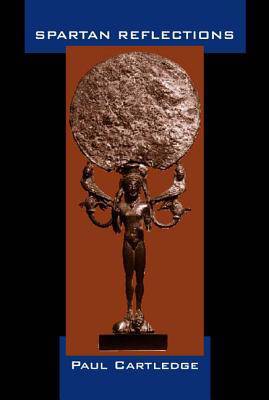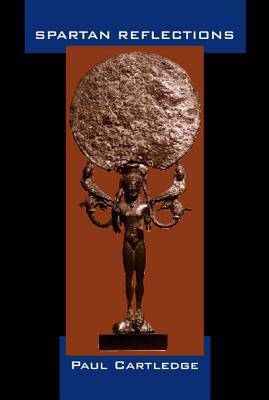
- Retrait gratuit dans votre magasin Club
- 7.000.000 titres dans notre catalogue
- Payer en toute sécurité
- Toujours un magasin près de chez vous
- Retrait gratuit dans votre magasin Club
- 7.000.000 titres dans notre catalogue
- Payer en toute sécurité
- Toujours un magasin près de chez vous
Description
The complex and distinctive Spartan tradition has been a prominent theme in western thinking from antiquity to today. Sparta is also one of a handful of ancient Greek cities with enough existing evidence for historians to create a realistic social portrait. Over the past quarter-century Paul Cartledge has established himself as the leading international authority on ancient Sparta. Spartan Reflections is a superb collection of his essays-two are published here for the first time, and the rest, often difficult to locate, have been revised and updated for publication in book form. Giving us a real sense of what Sparta was like as a culture, these essays constitute a fascinating introduction to and overview of ancient Spartan history and its reception. This collection, unique in breadth and scope, will be an essential source for anyone interested in this idiosyncratic society.
Cartledge brings us up to date on what is known about the most important and intriguing aspects of Sparta: its military development, questions of gender and sexuality, and the difficult problem of artistic and literary aspects of Sparta. We learn about the institutions that distinguished Sparta from other city-states, including its religion, education process, degree of literacy, secret service, unusual system of servitude, and institutionalized pederasty. Throughout, Cartledge also makes important comparisons with Athens, helping us grasp what is really striking about Sparta.
Cartledge's writing is clear and engaging as he draws from myriad sources both ancient and modern, as well as from political and cultural theory. These essays, together with their magisterial bibliography, demonstrate his remarkable scholarly and intellectual range. Spartan Reflections will be an important source on the most significant issues in Sparta scholarship today as well as a fascinating look at this culture for general readers.
A Selection of the History Book Club
Cartledge brings us up to date on what is known about the most important and intriguing aspects of Sparta: its military development, questions of gender and sexuality, and the difficult problem of artistic and literary aspects of Sparta. We learn about the institutions that distinguished Sparta from other city-states, including its religion, education process, degree of literacy, secret service, unusual system of servitude, and institutionalized pederasty. Throughout, Cartledge also makes important comparisons with Athens, helping us grasp what is really striking about Sparta.
Cartledge's writing is clear and engaging as he draws from myriad sources both ancient and modern, as well as from political and cultural theory. These essays, together with their magisterial bibliography, demonstrate his remarkable scholarly and intellectual range. Spartan Reflections will be an important source on the most significant issues in Sparta scholarship today as well as a fascinating look at this culture for general readers.
A Selection of the History Book Club
Spécifications
Parties prenantes
- Auteur(s) :
- Editeur:
Contenu
- Nombre de pages :
- 288
- Langue:
- Anglais
Caractéristiques
- EAN:
- 9780520231238
- Date de parution :
- 01-08-01
- Format:
- Livre relié
- Format numérique:
- Genaaid
- Dimensions :
- 168 mm x 250 mm
- Poids :
- 598 g

Les avis
Nous publions uniquement les avis qui respectent les conditions requises. Consultez nos conditions pour les avis.






